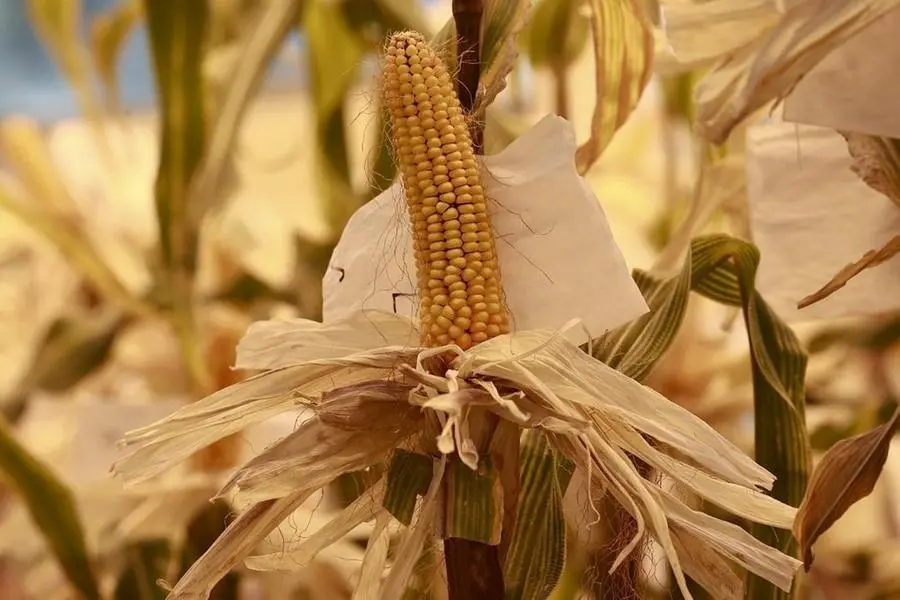PHOTO
PARIS/SINGAPORE - Chicago soybean and corn futures eased on Thursday as an advancing U.S. harvest underscored ample global supplies while weaker oil prices raised concern about global demand.
Wheat edged up, steadying after Wednesday's slide as drought risks to southern hemisphere crops countered pressure from Black Sea supplies.
Grain markets were awaiting weekly U.S. export sales figures for an update on overseas demand.
The most-active soybean contract on the Chicago Board of Trade (CBOT) was down 0.7% at $12.64 a bushel by 1132 GMT.
Corn was 0.5% lower at $4.83-1/2 a bushel while wheat added 0.5% to $5.63 a bushel.
Crude oil extended losses on Thursday amid worries about a weakening economy, putting pressure on crops like corn and soybeans that are partly used for biofuel.
Clement early autumn weather was expected to help harvest progress in the U.S. Midwest, while recent data suggested scope for better yields than feared during hot, dry summer spells.
"Corn and soybean prices remain under pressure from the ongoing harvest in the United States," consultancy Agritel said.
However, traders continue to watch for of a seasonal rebound in prices as the northern hemisphere harvest season nears an end and drought threatens crops in several exporting countries.
Argentina's agricultural heartland needs more rain soon to avoid wheat productivity losses and finish planting early season corn, after showers last week failed to quench parched farmlands, the Rosario grains exchange said on Wednesday.
In Australia, another major southern hemisphere grain exporter, the government on Thursday said it expects dry weather and low livestock prices to reduce average farm incomes by 41% 2023–24.
Ukraine, meanwhile, is likely to sow less winter wheat than initially expected for the 2024 harvest due to the prolonged absence of rain across most regions, Agriculture Minister Mykola Solsky said on Thursday.
But steps by war-torn Ukraine to re-establish a sea corridor for were underscoring availability of wheat from the Black Sea zone.
"Traders, particularly financial operators, are interpreting the gradual resumption of exports from Odesa as additional competition on the international wheat market," Agritel said.
(Reporting by Gus Trompiz in Paris and Naveen Thukral in Singapore; Editing by Rashmi Aich and Varun H K)





















